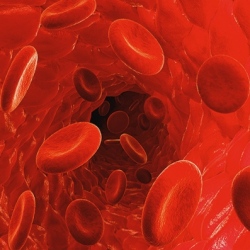
New ways of tracking the contents of our sweat has opened up some exciting possibilities in health monitoring, from checking insulin levels to painting much broader pictures of well-being. Alcohol trackers are a part of this, and a new flexible, tattoo-like sensor developed by US researchers might be the most discreet one we’ve seen yet.
Transdermal alcohol monitors are no new thing. They have been used by law enforcement for some time as a way of keeping tabs on repeat DUI offenders, but these have typically taken the shape of an ankle bracelet. Recently, we have seen them packed into more consumer-friendly bracelets that track blood-alcohol levels in real time, and even ping your phone when you’ve had enough.
Taking things one step further is a team of engineers at the University of California, San Diego, who have built a flexible sensor they say can precisely track blood alcohol levels and wirelessly relay the readings to a laptop or mobile device. The device is worn like a temporary tattoo and picks up on alcohol levels in sweat within 15 minutes of being applied to the skin.
Within the tattoo are screen-printed electrodes and a small hydrogel patch loaded with pilocarpine, a drug used to treat dry mouth and glaucoma by inducing saliva and sweat through the skin. As the tattoo draws perspiration, it makes contact with the electrodes that are coated in alcohol oxidase. This kicks off a chemical reaction that generates hydrogen peroxide, which is detected electrochemically.
A printed, flexible circuit board is magnetically attached to the tattoo to provide it with power and Bluetooth functionality. This board also receives these hydrogen peroxide levels as electrical signals, before sending the data to the laptop or mobile device.
The sensor was put through its paces with nine healthy volunteers, who wore the tattoo both before and after consuming either beer of red wine. The levels recorded by the device truly reflected the participant’s actual blood alcohol concentration, even after being subjected to bending and shaking.
Imagining that the device could be useful for not just police officers, but doctors as well, the researchers are now working to develop a version that can track alcohol levels for 24 hours straight.
"Lots of accidents on the road are caused by drunk driving," says study co-author Joseph Wang. "This technology provides an accurate, convenient and quick way to monitor alcohol consumption to help prevent people from driving while intoxicated."
